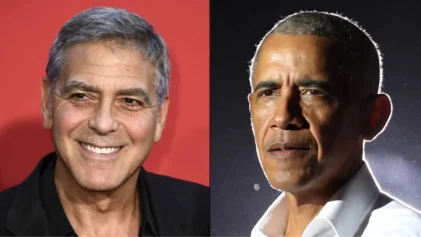Over the Memorial Day weekend I watched PBS’ “For Love of Liberty: The Story of America’s Black Patriots,” which tells the history of African Americans in the military who fought to win and protect freedoms they themselves did not have in their own country.
I thought about those who fought in the Civil War to win freedom from enslavement and the freedom to marry whom they chose and to own property, those veterans who fought in World Wars I and II and in the Korean Conflict, who came home to segregation and the inability to vote in many places.
The NAACP believes that right to vote is threatened again in ways that it has not been since the dismantling of Reconstruction and that now, more than ever, it is important for black Americans to register and vote and to think beyond whether President Obama is re-elected. The election is about more than Obama, more than gay marriage, more than one issue.
“People vote the top of the ticket and ignore the bottom, but the bottom is what kills,” Benjamin Todd Jealous, president and CEO of the NAACP, told me in a recent interview. “It’s the (county) supervisor who votes on health care and whether your schools get the funding they need; it’s the sheriff who keeps you safe or endangers your life. This is about whether my community is safe.”
In the wake of the Trayvon Martin slaying, Jealous said, young voters need to pay particularly close attention to local races.
“They need to understand how inserting themselves in the democratic process determines who the next sheriff is, who the judges are, the next mayor, who’s on the school board.”
The veteran civil rights organization is leading a coalition that has launched a 50-state, nonpartisan voter registration and education campaign to counter efforts that could keep up to 5 million voters away from the polls in 2012, many of them black.
“When our community was celebrating in 2008 the breaking of the color barrier at the White House we should have been planning for the backlash to follow,” Jealous said.
“History has shown that after each advancement in voting rights there was a backlash. It happened after the Civil War, it happened after the passage of the Voting Rights Act and it happened after the election of the first black president.”
This Is My Vote! (www.thisismyvote.org) seeks to register hundreds of thousands of new voters in coordination with state and college NAACP chapters, voter advocacy groups and other civil rights organizations.
The NAACP is targeting 12 states for an enhanced registration, education and GOTV (Get Out The Vote) campaign, particularly in response to new, onerous laws on the books that aim to restrict voter registration drives, limit when and where people can register to vote, reduce the window for early voting, as well as improperly purge voter registration rolls, require new photo IDs (21 million Americans don’t have photo ID, including 25 percent of African Americans of voting age) and reverse earlier decisions that made it easier for people with past felony convictions who have paid their debt to society to have their voting rights restored.
Even those who disagree with Obama on a big issue like same-sex marriage believe it is important to rally the base.
The Rev. Emmett Burns, pastor and founder of the Baltimore-area Rising Sun First Baptist Church and a Maryland legislator, publicly withdrew his support for the president after Obama’s nationally televised interview on ABC in which he said he believed gay Americans should have the right to marry.
Burns even told his congregation that he planned to sit out the November election, because while he was disappointed by the president, “there is no way I would ever vote for Mitt Romney.”
Burns, who has been a strong Obama supporter, has been equally opposed to same-sex marriage and has been working to get a proposal to ban gay marriage on the November ballot in Maryland.
“I love the president, but I cannot support what he has done,” Burns told his congregants.
But after getting a rash of phone calls, Burns, a protégé of the late civil rights activist Medgar Evers, said he came to agree with those who said it would be wrong to encourage black people not to vote “after all we went through to get it.”
“I’m also confident with my scriptural position and what it says in the Bible. On the other hand, black folks should vote and I encourage them to vote,” Burns said.
Those who fought in this nation’s wars most certainly were seeking to secure full citizenship for themselves, but they also sought to ensure that their children, grandchildren and great-grandchildren would not have to fight that battle.
So while it is important to take time to remember the contributions of those who put their lives on the line for their fate and that of subsequent generations, it is also important to exercise the franchise of the vote. Failing to do so slights their legacy and almost certainly guarantees that those who wish to deny opportunities to black Americans will have an easier time down the road of doing just that.


